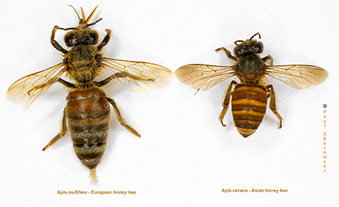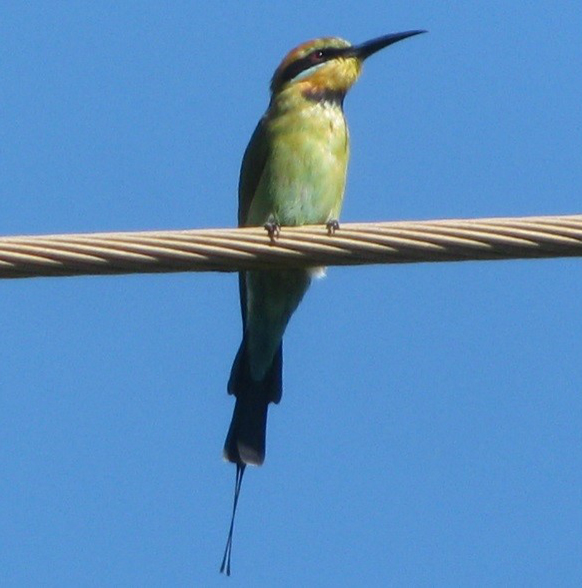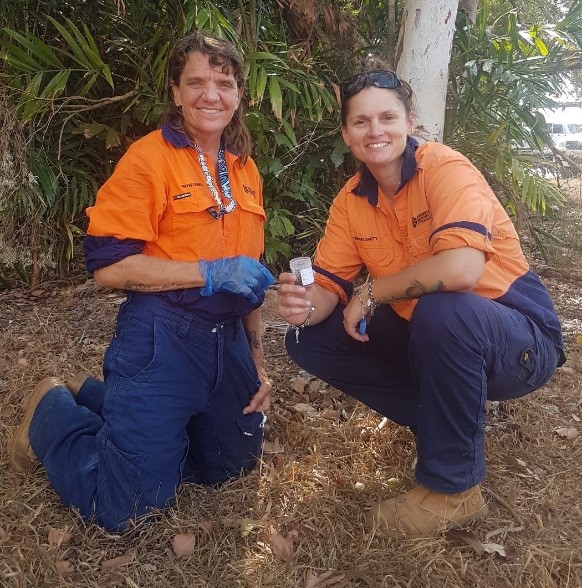Biosecurity Alert: Asian Honey Bee
The Northern Territory Government has a biosecurity response underway to detect the presence of Asian honey bee. Asian honey bees are a serious threat to the community, beekeeping and plant industries, because they could carry the varroa mite which feeds on bees.
They can also spread other pests or diseases to European honey bees, which are used to produce honey and pollinate fruit and vegetable crops. The Asian honey bee is already in Queensland and a swarm was found in Karama in May 2018.
Although the bees were not carrying the varroa mite or other pests and diseases, authorities are asking the community to report any suspect bees to help protect beekeeping and plant industries.

The standard European honey bee (left) compared with the Asian honey
How to identify Asian honey bees
Asian honey bees:
- are yellow and dark brown with black stripes on their body and legs
- similar to the common European honey bee, but about 5mm smaller
- move in very tight clusters that range from the size of a closed hand to that of a basketball when swarming
- are more aggressive than European bees and more likely to sting.
Monitoring bees through rainbow bee eater sightings
The rainbow bee eater is a colourful native bird that eats honey bees. Bee eaters can be used to monitor for the presence of honey bee species by tracking roosts and collecting their pellets for testing. Bee eaters roost in large colonies in single trees. They move collectively to their roost tree shortly before sunset. You can track them by following the birds at sunset.
Any information on location of roost trees, or sightings of small groups of bee eaters travelling in a specific direction at sunset may help us locate the presence of Asian honey bees.
Figure 3: Rainbow bee eater (left), a native bird that can be used to monitor for the presence of honey bee species. Right: DPIR Asian honey bee surveillance officers.
How can you help?
Anyone can help by reporting suspect bee sightings to NT Plant Biosecurity to protect our honey bee industry.
- Call the apiary officer on 0401 115 853 to report sightings of bee eaters or Asian honey bees.
- Reports can also be made to the exotic plant pest hotline on 1800 084 881.
For more information or visit the NT Government website.
Give feedback about this page.
Share this page:
URL copied!

